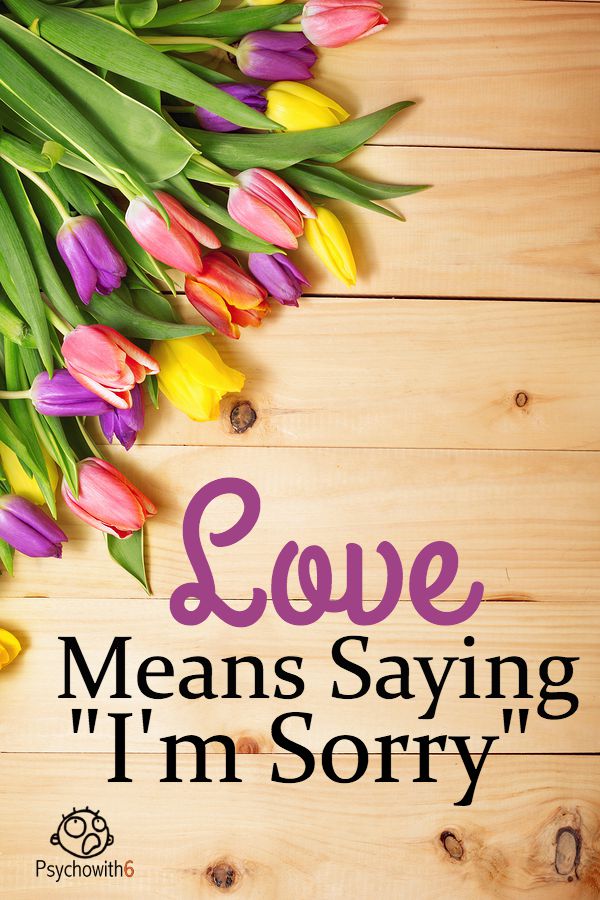In my grandparents’ generation, it was uncommon for moms and dads to say, “I love you.” Their generation spawned the Mommy Dearest generation, who was ready to spew forth a list of grievances against their parents at the first therapist’s invitation. Today’s parents try to do everything possible to avoid being the subject of a malicious memoir. Most say “I love you” quite frequently. Unfortunately, I think we’re still failing to communicate love. One reason is our refusal to say I’m sorry.

Words We Need to Hear…
When you think back over the worst times of your life–the relationship that ended badly, the job you were fired from, the blame you didn’t deserve, what do you find yourself longing for? When the victim’s family gathers to see the execution of their loved one’s murderer, what do they long for? I think they want to hear a heartfelt “I’m sorry.”
We Don’t Say to Others
We all long to hear these words when we’ve been wronged, yet when we’ve hurt someone, failed someone, or disappointed someone, we don’t say, “I’m sorry.” We say, “I love you.” We explain why it wasn’t our fault. Why we didn’t have a choice. Why anybody could understand if they walked in our shoes. That it’s just how we are. Meanwhile our frequent proclamations of love are giving us more divorces and failed families than any past generation.
Because of our propensity to avoid the I’m-sorry, I have quit telling anyone but my immediate family that I’ve been hurt by something someone said or did. When I have admitted to hurts in the past, thinking that this is a healthy way of managing relationships, I don’t get “I’m sorry.” Instead, the wounding party produces a voluminous list of grievances from the past decades. Apparently no “I’m sorry” is warranted if you’ve been hurt too. In the rare instances I have heard a “sorry,” it is almost immediately followed by a “but.” Or it’s a “sorry you took it that way.”
Why We Don’t Say “I’m Sorry”
Why do we refuse to admit to wrongdoing? When we don’t say we’re sorry, we carry around the guilt of our misdeeds. Perhaps we can fool others into thinking we have no responsibility for anything that we do, but we can’t fool ourselves forever. Guilt eats away at our conscience producing physical and mental disorders in addition to the destruction of our most precious relationships. Do we avoid saying the words because they make us vulnerable? They most certainly do. Negotiating conflict in relationships effectively requires vulnerability, a give and take. Some of us, however, are afraid to say we’re sorry because we think it makes our worst fears about ourselves true: I’m a terrible mother. I’m insensitive. I’m a rotten wife. A bad employee. An idiot.
Saying we’re sorry only means that we admit to doing something that wasn’t right. Saying we’re sorry actually means that we are good mothers, wives, and employees who are sensitive and smart.
I know there are times I haven’t said I’m sorry when I should have or at least as quickly as I should have. But like my parents’ generation desired to say “I love you” to give that which they missed in their own childhoods, I am determined to tell my children I am sorry regularly. They may still write a nasty tell-all book about all my failings, but at least they won’t be able to say, “And she never said she was sorry.”
Do you need to say you’re sorry to someone? Pray for the strength to do it today.






